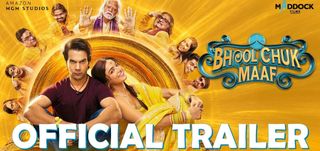Garv Movie Review
Like the rest of the crew, dialogue writer Anirudh Dhodapkar knows how to fall blissfully into the claptrap.
Every component of "Garv" is designed to get the masses into a foam-and-fume-filled frenzy. Every sequence in debutant director Puneet Issar's film ends with a double exclamation mark.
Every massy filmmaker from Prakash Mehra to Iqbal Durrani gets close to the people's pulse by tapping the basest instincts in the audience. Issar gets down to basics double quick. "Garv" doesn't waste time in establishing the cop-hero as the rebel without a pause!
The main actor gets an across-the-board monopolistic up-close-and-personal treatment by the script much like the angry-young-man anti-establishment Amitabh Bachchan films of the 1970s and 80s. "Garv" harks back with arrogant pride to the most illustrious action-potboilers of those times.
Its tone of presentation, treatment of characters and hysterically rabblerousing projection of socio-political values must be evaluated in the context of Prakash Mehra's "Zanjeer" and Manmohan Desai's "Coolie" rather than the politics savvy cinema of today like "Dev" and "Yuva".Like "Zanjeer", the seething cop in the driver's seat cannot come to terms with the rot around him.
Salman's Arjun is a direct descendent of Bachchan's Vijay. The difference lies not in the concept of heroism but the changing face of villainy.
While "Zanjeer" had smuggler Ajit operating deviously from his den with his Mona Darling (Bindu), the kingpin in "Garv" is a don from Dubai (Mukesh Rishi) who controls everything, from the film industry to the politics in Mumbai.
The similarities to a certain Dawood Ibrahim aren't just intentional. They give the malice-element in the masala a certain edge.
Issar takes a bird's eye view of terrorism-related issues such as the isolation of the Indian Muslim.
So far Salman has largely been seen doing romantic eye candy with dark overtones emerging in his last film "Tere Naam". "Garv" is his first headlong plunge into populist cinema.
As the cop who takes on the corrupt, Khan goes for the jugular, dropping his voice to a threatening whisper, taking on the scum of the earth with that characteristic sneer of contempt.
In the sequence where his colleagues interrogate him after he kills a notorious pimp in an encounter, Salman is delightfully sarcastic.
His performances are becoming increasingly fine-tuned. His physical and emotional restrain countermands the monstrous excesses of the villainous brigade.
Govind Namdeo as the corrupt Maharashtrian chief minister Trivedi seems to be on the verge of a paralytic stroke. Do we have to give such a sickeningly overblown spin to villainy?
Even Anupam Kher as a debased lawyer - his sleazy arguments against the hero in the courtroom have to be heard to be believed - turns on the hysterical mode full force.
For some badly needed self-control, there's Amrish Puri cast in the appealing, idealistic role of Salman's senior and later his defence lawyer.
While the arch-villains and their henchmen occupy whatever space Salman allots them, Arbaaz as his comrade gets surprisingly ample footage, including a long shootout where he eliminates explosives as though they were a heap of Diwali crackers.
Incongruities, such as long song breaks with bar dancer girlfriend Shilpa Shetty, take the edge away from Salman's performance. And to watch a serious no-nonsense cop break into a jig with Shilpa in an orange dhoti, requires nerves of steel.
Shilpa provides the song breaks. The fact that she dances like the wind, helps give her role a spatial rhythm. But the item song by another starlet is downright vulgar.
The film editor creates a hullabaloo of suspense around the question, what happened to the hero's sister while we were busy watching him fight the baddies? She gets raped.
Hasn't the hero's sister been subjected to this indignity from the time Hindi cinema was invented? To create intrigue out of this moth-



















